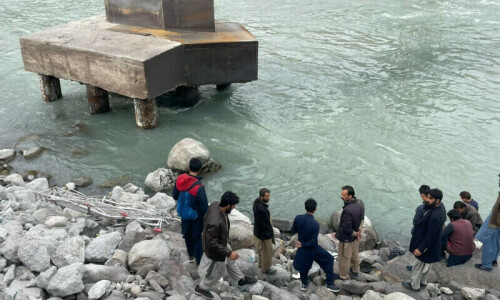MUMBAI/NEW DELHI: India is unlikely to soften its stance on agriculture at global trade talks and may even gamble on the negotiations stretching into next year when a new US administration is in place, analysts say.
India, a key player in World Trade Organisation (WTO) talks, does want a conclusion to the long-running talks, they said.
But the world’s 11th biggest food exporter, according to WTO figures, prefers no deal to one that neglects the needs of poor countries, in line with the development mandate of the talks built in at their launch in Doha in 2001, the analysts said.
Trade Minister Kamal Nath meets the top US trade official Susan Schwab in New York on Thursday, with the agriculture talks, the key to an overall deal, delicately poised.
US business groups criticise India for not doing more to open the markets of advanced developing nations to more foreign farm and manufactured goods and services which might then win it more acceptance for its own farming demands.
But Indian trade analysts say there is not enough on the table from developed nations such as the United States. They want to see a bigger cut in farm subsidies, more flexibility on farm product access and bigger differentials in rich and poor country industrial tariffs for India to bend more yet.
“We want a meaningful deal rather than a deal for its own sake,” said Nagesh Kumar, Director-General at think-tank Research and Information System for Developing Countries (RIS).
If there was no deal until next year, then so be it, Kumar said. “But we certainly would like the developmental content in the deal, which was on the table in Doha, when the ministers sign the piece of paper.”
The round was launched to help poor countries export more and boost the global economy but it has missed a series of deadlines.
Talks have intensified recently and new draft texts on farming and industrial goods are expected this month which could pave the way for a meeting of trade ministers.
But without a deal soon, a change of administration in Washington, Brussels and even possibly India, which faces elections by May 2009, risk more delays when concerns are growing about rising protectionism.
NOT MUCH CHANGE IN TONE: Nath’s stance, publically at least, has not altered much in the past year.
“There is no scope for accepting any proposal which compromises agriculture. We have to ensure that the United States comes down very very substantially on its subsidies,”
Nath told reporters on Friday.
“India wants to be a part of the solution in closing this round but this has to be an equitable package.”
Washington has said it will cut its trade-distorting subsidies to the $13-16.4 billion proposed in a negotiating draft. But developing countries urge it to go below that, arguing soaring food prices offer a chance to cut subsidies further.
Indian officials say they are not afraid of waiting a year if Washington cannot offer deeper cuts in farm subsidies or adequate scope for developing nations to protect their farmers — often subsistence in the case of India — if faced with an import glut.
“Having waited for six years we can wait another year if that’s going to give us a good deal,” Commerce Secretary Gopal K. Pillai said in April.
And Nath told reporters: “We do understand that in the United States with the election atmosphere... the space available to their negotiators may not be enough.”
India’s ruling Congress party faces state elections and a national vote in the next 12 months. It is battling a surge in inflation while facing the threat of erosion in its rural voter base from the main opposition and smaller caste-based parties.
—Reuters











































Dear visitor, the comments section is undergoing an overhaul and will return soon.